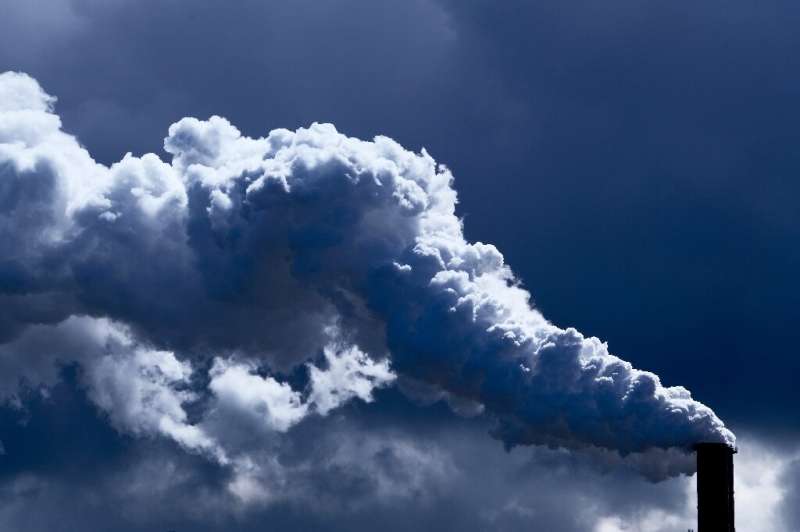AGL said it would shutter one of Australia's biggest carbon emitters, the Loy Yang A Power Station in Victoria's Latrobe Valley, by mid-2035.
Australia's biggest carbon polluter announced Thursday it will exit coal-fired power a decade early, as renewable projects surge in a country long seen as a climate laggard.
AGL said it would shutter one of Australia's biggest carbon emitters, the Loy Yang A Power Station in Victoria's Latrobe Valley, by mid-2035, a decade earlier than previously targeted.
Its closure would complete AGL's exit from all coal-fired power, the company said.
"This represents one of the most significant decarbonisation initiatives in Australia," said AGL chair Patricia McKenzie.
This week, Queensland said it would build one of the world's largest pumped hydroelectric energy storage schemes and Victoria's government pledged to build enough renewable energy storage for half of the state's homes by 2035.
AGL is Australia's largest energy provider and owns three of the country's biggest coal-fired power stations.
The company has faced intense pressure in the past year from environmental groups and shareholder activists pushing for a faster transition away from coal.
AGL also confirmed Thursday that its largest coal-fired power station—Bayswater in New South Wales—remains on track to close before 2033.
Once the brown coal-burning Loy Yang A is closed in 2035, the company would be net zero for direct and indirect carbon emissions, McKenzie said.
Turmoil to transition
AGL's incoming interim chief executive Damien Nicks said the closures were "a major step forward in Australia's decarbonisation journey".
Nicks acknowledged "mounting pressure" from banks and investors for AGL to go green during a market update Thursday.
The announcement marks a major shift for AGL, which has previously dug in against attempts by its largest shareholder, billionaire green activist Mike Cannon-Brookes, to decarbonise.
Earlier this year, Cannon-Brookes tried to buy the company for about US$6 billion—an offer AGL rejected as "well below the fair value of the company".
But two months later, the energy giant abruptly announced the departure of its chairman Peter Botten, chief executive Graeme Hunt and a string of board members.
It also scrapped a long-planned move to spin off its lucrative but highly-polluting coal business, a "demerger" strongly criticised by Cannon-Brookes and Greenpeace.
"We have listened to our stakeholders... as well as government and energy regulatory authorities," McKenzie said.
States lead to net zero
The Australian state of Queensland unveiled on Wednesday its plans to build one of the world's largest pumped hydroelectric energy storage schemes.
The project sits at the centre of a plan to get Queensland—one of Australia's fossil fuel heartlands—to 80 percent renewable energy by 2035.
"We know that Queenslanders understand climate change. Today, government understands that we need to take action," Queensland Premier Annastacia Palaszczuk said.
The state of Victoria also announced this week that it would target 6.3 gigawatts of renewable storage by 2035—enough to power half of its homes.
Both signal a major energy transition for Australia, where 71 percent of electricity is generated by fossil fuels—51 percent of that from coal—according to government figures.
The country currently has the highest per capita coal emissions in the world, according to research by think tank Ember that was published in May.
Anchors away
Energy expert Greg Bourne, former President of BP Australasia, told AFP he believed that "many companies have had in the top drawer the plans they need to go forward and decarbonise".
He said companies were now pulling out these plans because of two key factors: Australia's change of government and the new market reality that "coal is not a commercially viable industry any longer".
"We been walking along with a dragging anchor," said Bourne, who serves as a member of Australia's Climate Council. "That anchor has been dropped now, the acceleration is really on."
He said he expected more announcements akin to AGL's decarbonisation plan in the coming months, although it is "far too early to say" how this week's news could filter in Australia's national emissions.
© 2022 AFP
























